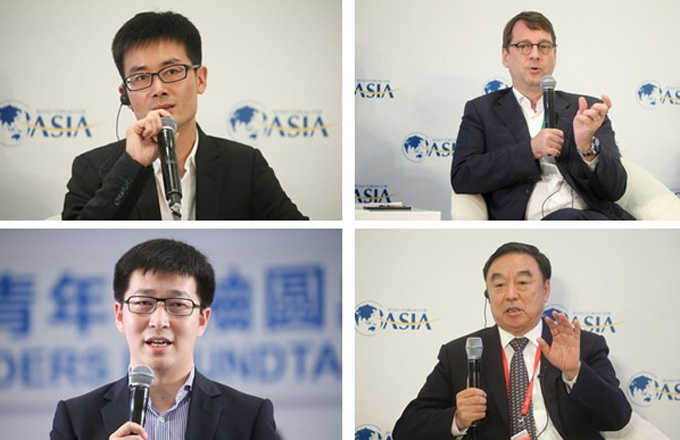Beijing tightens rules to turn away commercial property speculators
Beijing housing authorities tightened regulations on commercial real estate projects as a way to cool down a housing market with soaring prices fueled by speculative buyers.
According to an official statement released late Sunday by the city's housing, urban planning, industry and commerce and banking authorities, new commercial real estate projects — including those converted from office buildings to individual units — may be sold only to qualified enterprises, public institutions and social organizations. In addition, the smallest unit for sale should not be less than 500 square meters.
Moreover, personal loans for purchasing commercial real estate also have been suspended. And secondhand commercial housing can only be sold to individuals who have paid income tax or social insurance for five consecutive years and have no houses under their names in Beijing, the statement said.
The new tightening, the latest since March 17, will close the loophole investors used to make purchases and will show the government's determination to curb speculative buying in the housing market, the statement said.
Due to Beijing's strict housing purchase rules, some investors turned their eyes to small-unit commercial projects that had not been subject to such restrictions.
"The new policy will significantly slow down the commercial real estate market. The average price of such properties in Beijing is likely to drop by more than 30 percent," said Zhang Dawei, chief analyst with property agency Centaline.
Beijing has introduced a series of policies in the past two weeks to curb surging housing prices, including raising down payment requirement for buyers of a second home to as much as 80 percent of the asking price and shutting down real estate agencies for illegal operations.
"More measures are likely to be introduced to work as patchworks to existing policies to cool down the sizzling housing market, which should leave no room for speculative buyers," said Yan Yuejin, research director at E-House China R&D Institute.
In Shanghai, Nanjing, Hebei and Tianjin, policies regulating sales of commercial real estate have been tightened in the past six months.
"Policymakers are no longer giving spaces to spillover speculative demands," said Zhang Hongwei, an analyst with Tongce Realty Consultancy.
Some property developers, including Shenzhen-based Vanke, the country's largest property developer in terms of market value, also forecast that the average housing price would drop in some cities.
In its annual report for 2016, released on March 16, the company said its 13 projects in 12 cities are likely to see value shrink, since it projects that average housing prices will decline.
Contact the writers at wuyiyao@chinadaily.com.cn

















